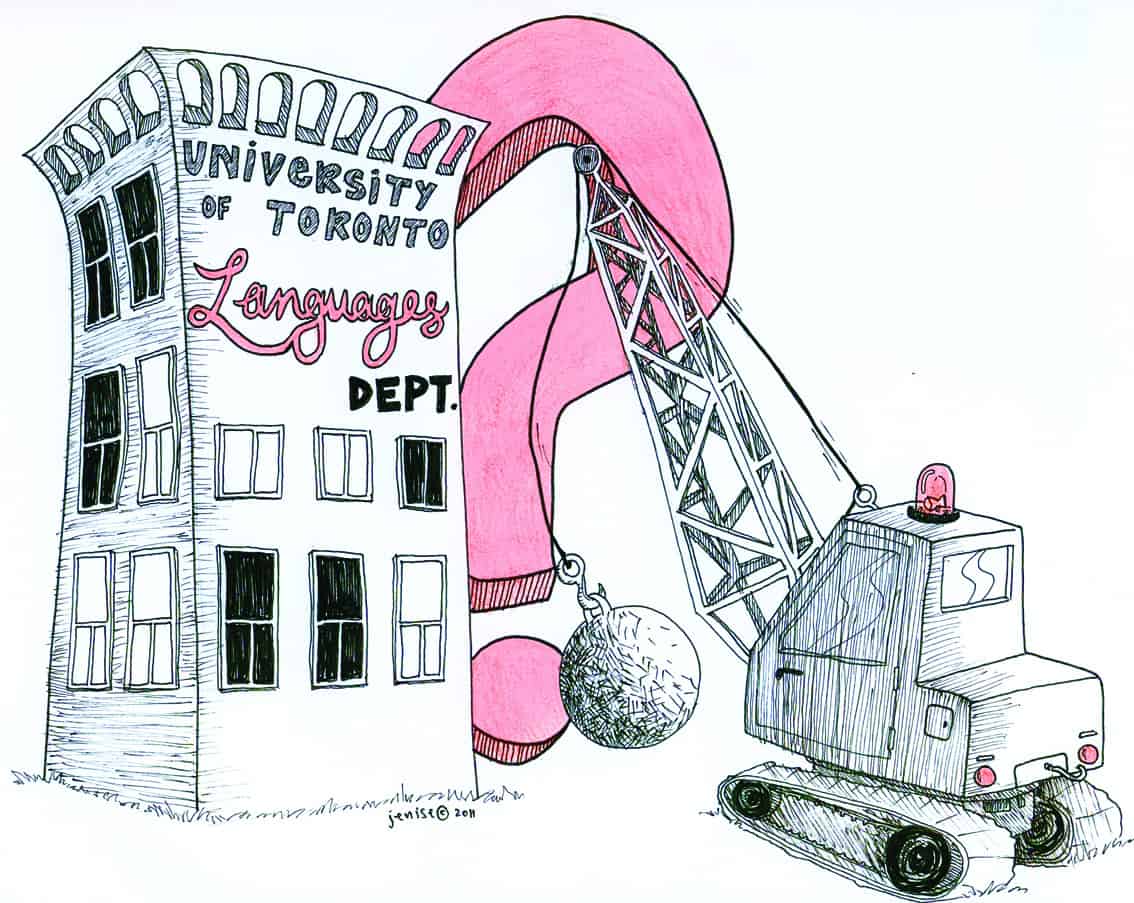Ever since last year’s suggested changes to some of U of T’s language departments, there has been much speculation about their fate.
The changes included the construction of a new School of Languages and Literatures, the termination of programs and centres such as the Centre for Ethics and the Centre for Diaspora and Transnational Studies, and the disestablishment of the Centre for Comparative Literature, which would render it unable to grant degrees.
Departments involved felt that staff and students would be greatly affected and the proposals would hurt the university’s reputation as a prime research institution.
“The real contribution of the program is how it expands small-scale individual work with opportunities for collaboration and creatively working out new ideas on campus, in the city, and internationally,” said Nick Terpstra of the Centre for Diaspora and Transnational Studies. “That potential would have been lost at a time when many people realize that it’s precisely that potential that is part of this university’s strength and future.”
Similarly, Neil ten Kortenaar of the Centre for Comparative Literature said that the individuality of U of T’s language programs was threatened by the departments’ amalgamation.
“Amalgamation would have posed a threat to the smaller languages and to the reputation of the researchers in literatures and languages at Toronto,” he said.
Ever since the proposed changes, Arts and Science dean Meric Gertler says that departments have been working hand-in-hand to pursue initiatives designed to attract more students.
“[Extensive consultation] has succeeded in eliciting many constructive suggestions for alternative ways to achieve our academic objectives,” he said. “The spirit of co-operation and collaboration between individual departments around this issue has been both impressive and heartwarming.”
The departments involved also seem to agree that there is no animosity lingering between the departments and the administration, especially after the deliberation.
“The problem was the lack of consultation,” said Kortenaar. “I believe that has been corrected and that there is a new spirit of consultation in the administration.”
“There’s a new willingness to work together to see the Centre and Program expand,” said Terpstra.
Joseph Heath, director of the Centre for Ethics, said that time has erased any reason for “bad blood.”
“It’s been almost two years since the initial plan to cut the Centre was put forward, and there’s been a lot of personnel change during that time,” said Heath, who started as a director last July.
Department members also feel that their positions at the university aren’t endangered — at least at the moment.
“I don’t see any immediate threats to the CDTS, but I wouldn’t take anything for granted,” said Kortenaar.
Regardless of all the proposed changes, organizations like the Greek Students Association (GSA) have been petitioning for new language courses at the university.
“The reason why we have started it now is because we are finally ready and have all the resources to do it,” said GSA President Dimitri Kyriakakis, describing that the petition currently has over 1000 student signatures and support from Greece’s Ministry of Education, Hellenic organizations, and American universities.
He explained that the discourse between the administration and the language departments has nothing to do with GSA’s decision to put their petition forward.


